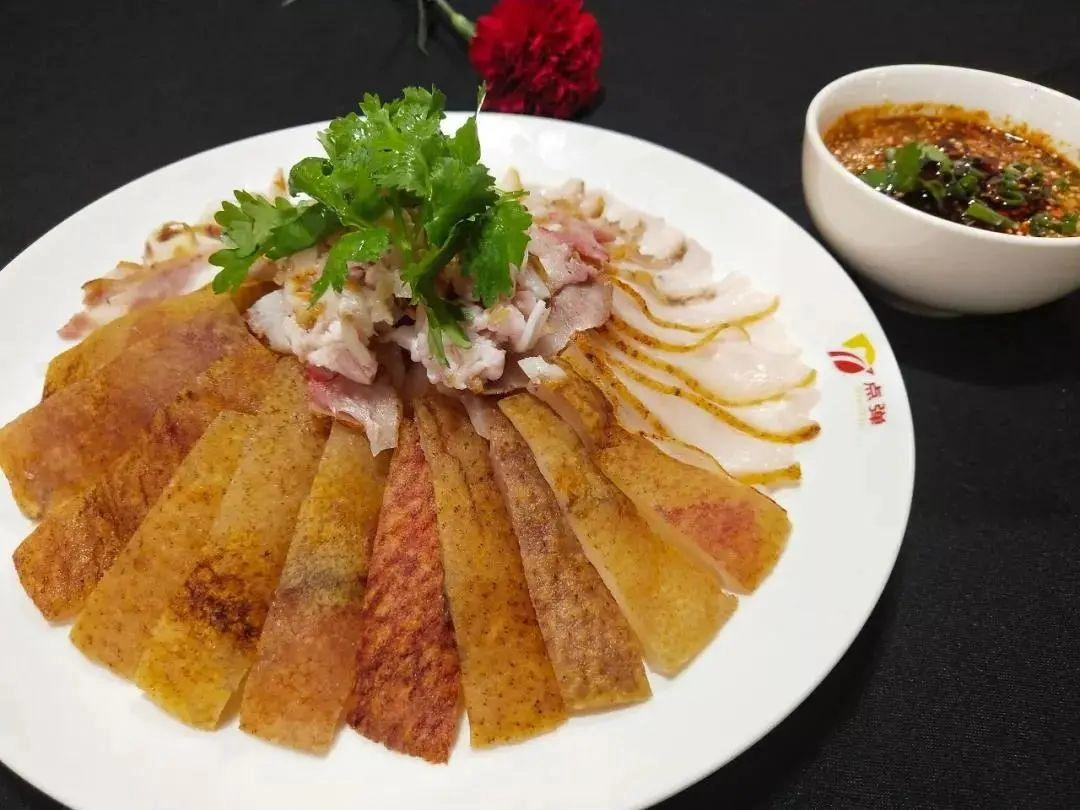Le délicieux dali shengpi: Un voyage culinaire dans la cuisine dali du Yunnan
Introduction:
En tant que connaisseur et praticien passionnant, I am thrilled to share with you the exquisite culinary delight known as Dali Shengpi, a traditional dish from the enchanting city of Dali in Yunnan Province, Chine. Ce plat, souvent appelé “fire-roasted pork with plum vinegar,” is a staple during the White Ethnic Minority’s annual festivals, and it offers a unique blend of flavors that truly represents the essence of Dali cuisine.
Origine et origine culturelle:
The history of Dali Shengpi dates back to the ancient Bai people, who have been living in the Dali region for centuries. It is said that the dish was first created as a means to celebrate the harvest and to honor the gods during their annual festivals. Au fil du temps, it has become an integral part of the Bai culture and is now enjoyed by locals and visitors alike during special occasions and family gatherings.
Ingrédients et préparation:
The making of Dali Shengpi is a labor of love, requiring the finest ingredients and meticulous preparation. The main components of this dish are:
1. Fresh pork, preferably from a local pig, which is marinated with a blend of traditional Bai spices, including star anise, Grains de poivre du Sichuan, and ginger.
2. Plum vinegar, a sweet and tangy condiment made from plums, sugar, and rice vinegar, which is a signature flavor in Dali cuisine.
3. Freshly chopped cilantro and green onions, which add a burst of freshness to the dish.
4. Chili peppers, which provide a spicy kick that is characteristic of Yunnan’s cuisine.
The pork is first marinated for several hours to allow the flavors to penetrate the meat. It is then slow-roasted over an open flame, which gives the dish its name “Shengpi” ou “raw skin,” as the outer layer of the pork becomes slightly charred, enhancing its smoky flavor. Once the pork is cooked to perfection, it is thinly sliced and mixed with the plum vinegar, cilantro, oignons verts, and chili peppers.
Texture et apparence:
Dali Shengpi is a feast for the eyes as well as the palate. The thinly sliced pork glistens with the juices from the plum vinegar, creating a vibrant and appetizing presentation. The contrast of the charred exterior with the tender, juicy interior of the pork is visually striking. The dish is often served on a large platter, with the pinkish hues of the pork complemented by the bright green of the cilantro and the red of the chili peppers, making it a colorful and inviting dish.
Plats de signature et caractéristiques culinaires:
Dali Shengpi can be enjoyed on its own or as a key ingredient in various Bai dishes. Some popular dishes that feature this delicacy include:
1. Shengpi Salad: A refreshing mix of Dali Shengpi, fresh vegetables, and a light dressing made from plum vinegar and sesame oil.
2. Shengpi Rice: A hearty dish where Dali Shengpi is served over steamed rice, often accompanied by a side of pickled vegetables and a spicy chili sauce.
3. Shengpi Noodles: A noodle dish where the noodles are tossed with Dali Shengpi and a flavorful sauce made from plum vinegar, Je suis de la sauce, and garlic.
The culinary features of Dali Shengpi are its unique combination of sweet, aigre, et saveurs épicées, which are characteristic of Dali cuisine. The dish is also known for its tender texture and the smoky aroma from the fire-roasting process. The use of plum vinegar is a distinctive element that sets Dali Shengpi apart from other pork dishes, giving it a tangy and slightly sweet taste that is both refreshing and satisfying.
En conclusion, Dali Shengpi is more than just a dish; it is a culinary experience that captures the rich history and culture of the Bai people. Its unique flavors and textures make it a must-try for anyone traveling to or interested in the cuisine of Yunnan’s Dali city. Donc, the next time you find yourself in this beautiful region, be sure to indulge in the delectable flavors of Dali Shengpi and experience the true essence of Dali cuisine.
